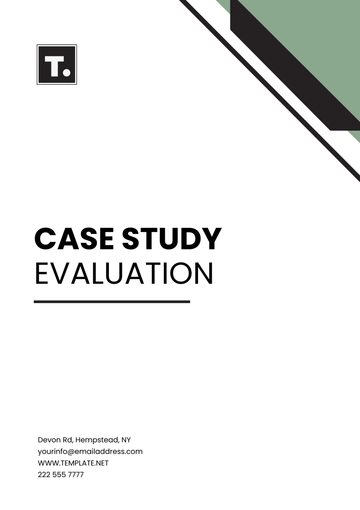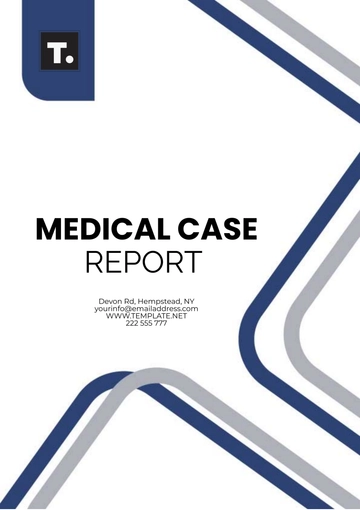Free Case Study Protocol

Prepared by: | [YOUR NAME] |
|---|---|
Company Name: | [YOUR COMPANY NAME] |
Department: | [YOUR DEPARTMENT] |
Date: | [DATE] |
1. Introduction
This Case Study Protocol (CSP) serves as a formal document outlining the framework for conducting in-depth investigations and analyses of specific cases, events, or phenomena. The purpose of this protocol is to establish a systematic approach to case study research, ensuring consistency, transparency, and reliability while respecting contextual nuances and ethical principles.
2. Objectives
The objectives of this Case Study Protocol are as follows:
To define the methodologies and procedures for conducting case study research.
To outline the objectives and scope of the case study investigation.
To establish ethical considerations and guidelines for the protection of research participants and the integrity of the research process.
To ensure the consistency and reliability of findings through standardized procedures and data collection methods.
3. Scope
This protocol applies to all case study research conducted within [YOUR COMPANY NAME] and outlines the procedures and guidelines to be followed by researchers and participants involved in the study. It encompasses various types of case studies, including exploratory, descriptive, explanatory, and evaluative studies, across different business contexts and industries.
4. Methodologies
The methodologies employed in this case study research may include but are not limited to:
Qualitative data collection methods such as interviews, observations, and document analysis.
Quantitative data collection methods such as surveys, questionnaires, and statistical analysis.
Mixed-methods approaches combining qualitative and quantitative data collection and analysis techniques.
5. Procedures
The procedures for conducting the case study research shall include the following steps:
5.1 Selection of Case: Identification and selection of relevant cases or cases based on the research objectives and criteria.
5.2 Data Collection: Collection of primary and secondary data through various methods, ensuring data validity, reliability, and relevance to the research questions.
5.3 Data Analysis: Analysis of collected data using appropriate qualitative and/or quantitative analysis techniques to derive insights and findings.
5.4 Reporting: Preparation of a comprehensive case study report documenting the research process, findings, conclusions, and recommendations.
6. Ethical Considerations
Ethical considerations are paramount in case study research, and the following principles shall be adhered to:
6.1 Informed Consent: Obtaining informed consent from research participants before their involvement in the study, ensuring voluntary participation and confidentiality of information.
6.2 Confidentiality: Ensuring the confidentiality and anonymity of research participants and sensitive information gathered during the study.
6.3 Respect for Participants: Respecting the rights, dignity, and autonomy of research participants, and minimizing any potential harm or discomfort.
6.4 Transparency: Providing clear and accurate information about the research purpose, procedures, and potential risks to participants.
7. Quality Assurance
Quality assurance measures shall be implemented throughout the research process to ensure the validity, reliability, and integrity of the findings. This includes regular review and verification of data, adherence to established protocols, and peer review of research outputs.
8. Conclusion
This Case Study Protocol outlines the framework for conducting systematic and ethical case study research within [YOUR COMPANY NAME]. By following the procedures and guidelines outlined in this protocol, researchers can ensure the reliability and validity of their findings while upholding ethical standards and respecting the rights of research participants.
- 100% Customizable, free editor
- Access 1 Million+ Templates, photo’s & graphics
- Download or share as a template
- Click and replace photos, graphics, text, backgrounds
- Resize, crop, AI write & more
- Access advanced editor
Discover the Case Study Protocol Template, available exclusively on Template.net. It's meticulously crafted to be editable and customizable, ensuring seamless adaptation to your research requirements. With compatibility with our Ai Editor Tool, streamline your case study methodologies effortlessly. Elevate your research endeavors today with this essential template, guaranteeing accuracy and professionalism every step of the way.





























